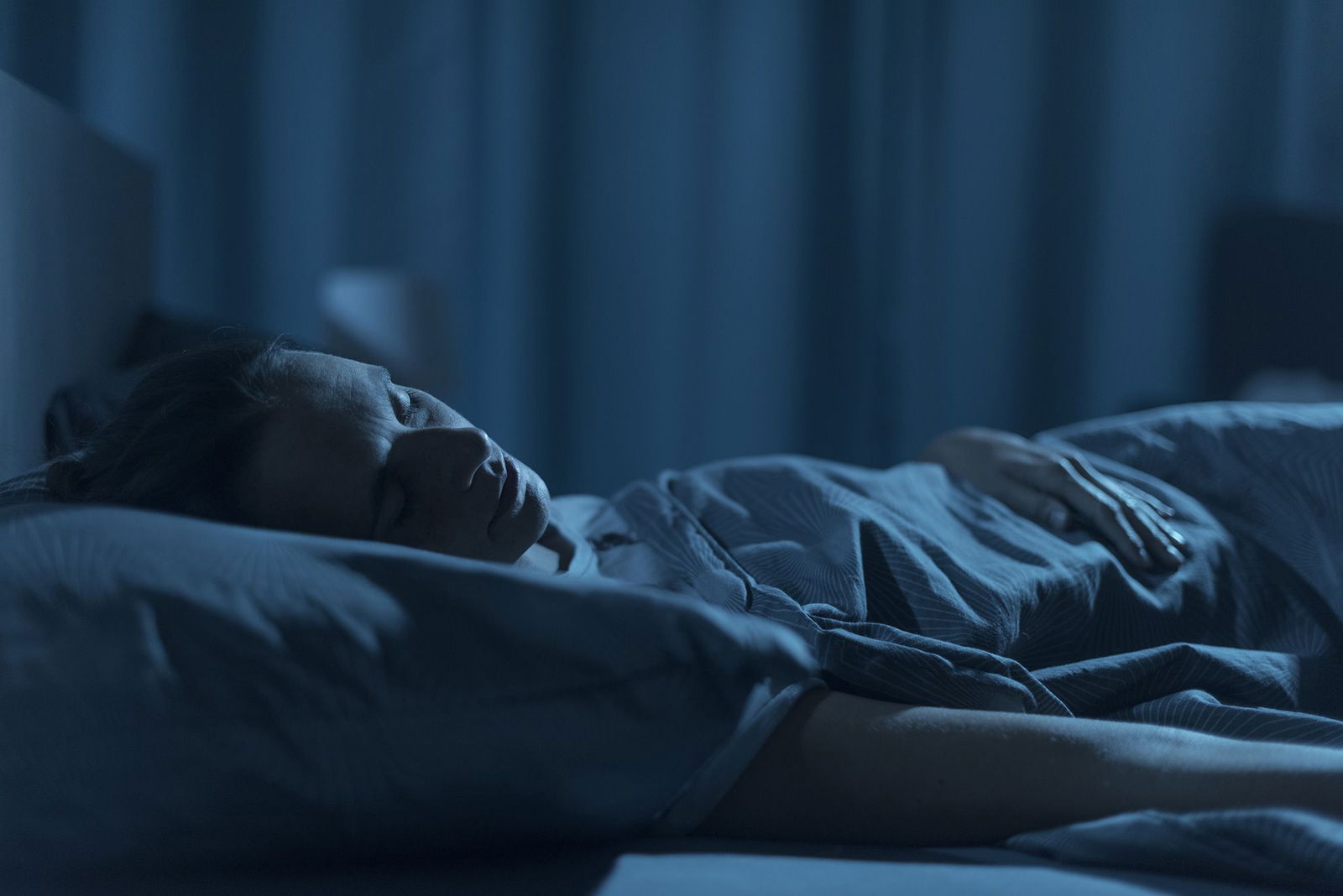Alzheimer’s risk rises when amount of deep sleep falls, study suggests

Lack of deep sleep
By Sandee LaMotte, CNN
(CNN) — Need another reason to prioritize your sleep? Not spending enough time in the two deep stages of sleep — slow-wave and rapid eye movement, or REM, sleep — may hasten the deterioration of parts of the brain associated with Alzheimer’s disease, a new study found.
Deficits in slow-wave and REM sleep appear to shrink parts of the brain known to be early indicators of cognitive deterioration and Alzheimer’s disease, said lead study author Gawon Cho, a postdoctoral associate in internal medicine at the Yale School of Medicine in New Haven, Connecticut.
“We found the volume of a part of the brain called the inferior parietal region shrunk in people with inadequate slow and REM sleep,” Cho said. “That part of the brain synthesizes sensory information, including visuospatial information, so it makes sense that it shows neurodegeneration early in the disease.”
Preventive neurologist Dr. Richard Issacson, who established one of the first Alzheimer’s prevention clinics in the United States, said in an email that his clinical experience treating adults at risk for Alzheimer’s supports the study’s findings.
“We also found sleep metrics on deeper sleep predicted cognitive function, so between that plus brain volumes, it’s real,” said Issacson, who is director of research at the Institute for Neurodegenerative Diseases in Florida. He was not involved in the study.
What happens in the brain during deep sleep
During deep sleep, the brain sweeps out toxins and dead cells while also repairing and restoring the body for the next day. While we dream during REM sleep, the brain is busy processing emotions, consolidating memories and absorbing new information. It makes sense that getting quality deep and REM sleep is key to our ability to function.
Adults need about seven to eight hours of sleep to be healthy, while teens and younger children need much more. However, data shows that more than 1 in 3 American adults don’t get enough sleep, according to the US Centers for Disease Control and Prevention.
Experts say most adults should spend between 20% and 25% of their night in deep sleep, and the same goes for REM sleep. Older adults require less, while babies need much more — in fact, infants can spend about 50% of their sleep in REM.
To make matters worse, deeper stages of sleep decrease as you age, Cho said.
Can you get more deep sleep?
Deep sleep tends to come soon after we fall asleep, while REM sleep appears later in the night, toward morning. Therefore, if you go to bed late and get up early, you are cutting your chances of spending enough time in one or both stages.
“The more time you are in bed, the more a person sleeps, and generally speaking, the longer a person sleeps, the more REM and deep sleep they will get,” Isaacson said.
However, you have to do more than just lie in bed longer — you also need have to have an uninterrupted, restful sleep on a regular basis, experts say. If you do that, there’s an additional payoff — a February 2023 study found good sleep habits added nearly five years to a man’s life expectancy and almost 2.5 years to a woman’s life.
To accomplish this, however, you can’t wake up during the night or have trouble falling asleep more than two times a week, the study found. You also have to feel well rested at least five days a week when you wake up. And finally, you can’t be using sleep medications to achieve your good slumber.
But don’t lose hope. The good news is that you can easily train your brain to better sleep by following what is called “sleep hygiene.” It’s important to go to bed at the same time on most nights and get up at the same time most mornings — even on weekends and holidays.
Make sure your sleeping environment is optimal — cooler and darker is better — and block noise or try a sound machine. Avoid booze before bed — it may seem like you’re falling asleep more easily, but when your liver finishes metabolizing the alcohol at 3 a.m., your body will wake up, experts say.
Set up a sleep routine, with no blue lights or distractions at least an hour before bedtime. Try meditation, yoga, tai chi, warm baths — anything that relaxes you is great.
“How do you make your sleep better? I think people really have to do their part to improve their own sleep,” Cho said. “There’s no one medicine that improves overall sleep.”
The-CNN-Wire
™ & © 2025 Cable News Network, Inc., a Warner Bros. Discovery Company. All rights reserved.



